Oil palm agroforestry production
Description
And it’s not just oil palm. From corn to bananas to potatoes, the monoculture has increasingly become the norm. But as the world’s population grows and requires more and more food, the strategy of increasing farm acreage at the expense of forests and grasslands is not one that our planet can afford.
In a city like Lagos, which has over 23 million people, an estimated 13,000 MT of waste is generated daily where about 35% are plastic water sachets. These plastic water sachets pose serious environmental issues and are a nuisance to the environment because they are non-biodegradable which reduces water infiltration into the soil, causes land degradation, and can also make landfill sites fill up quickly. Burning them causes air pollution because poisonous gases such as carbon monoxide, furans, and dioxins are released into the air. They endanger public health, destroy the ozone layer, and contribute to global warming.
AQUA-OSUK Enterprises Limited, an agribusiness startup in Nigeria with the soul of a social enterprise promoting regenerative agriculture by integrating recycling and agroforestry strategies to reverse the effects of climate change from oil palm production. Currently, we sell viable oil palm seedlings to oil palm smallholder farmers in osuk ediene community in Akwa-Ibom State, Nigeria. We collect used plastic water sachets popularly known as ''pure water'' from households and reuse them as polythene pots for our oil palm seedlings instead of buying new polythene bags to reduce the indiscriminate littering and burning of plastic water sachet waste. We also collect oil palm ash waste from oil palm mills and reuse it as manure for the seedlings instead of synthetic fertilizer to eliminate the risks of health problems related to chemical residue in crops, reduce the greenhouse effect and improve the crop yield organically.
We are at the verge of building the first oil palm agroforestry ecosystem over the next 10 years from 2024, to expand our production capacity on our proposed 10 hectares of land in Akwa-Ibom State, Nigeria and install palm oil milling and palm kernel cracking facilities. By the second quarter of the next two years in 2026, we will cultivate four hectares of land where about 500 stands of oil palm seedlings from our nursery will be transplanted with other crops such as cocoa, cassava, etc., to create an oil palm agroforestry ecosystem.
Our palm oil products will be processed from the fresh fruit bunches harvested from our oil palm agroforestry farms with 24 hours to meets with the international health standard of a maximum of 3% free fatty acid content.
The sum of about N4,763,753.13 Naira will be build the oil palm agroforestry ecosystem by purchasing our proposed land of 4 hectares of farmland (out of 10 hectares) in Akwa-Ibom state, equipment, and payment of other operating expenses. We anticipate a sales turnover of about N8,055,000.00 Naira, a gross profit of about N7,215,000.00 Naira, and a net profit after tax of about N3,781,350.00 Naira by the end of our fourth year of operation.
The ecosystem will serve as a hub to spread the awareness of regenerative agriculture and circular economy among farmers in rural communities and villages in the palm oil-producing states in Nigeria which will not only boost local production of palm oil but will solve the indiscriminate dumping and littering of waste (plastic water sachets and oil palm ash) reducing the contamination of water bodies and emission of greenhouse effect from the burning of plastic waste and the use of synthetic fertilizer by working with strategic local and international institutions. It will also eliminate the chances of chemical residual in crops, prevent deforestation, create job opportunities for women and the youths by creating demand for recycled waste, provide affordable and healthy crops and generate all-year income for farmers.
Sustainable Development Goals
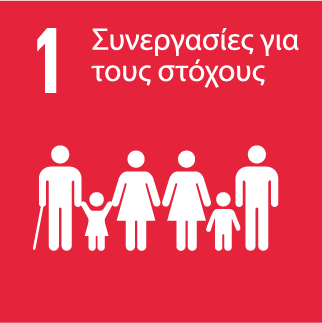
1. No Poverty
The demand for used plastic water sachets and oil palm ash will create employment opportunities.
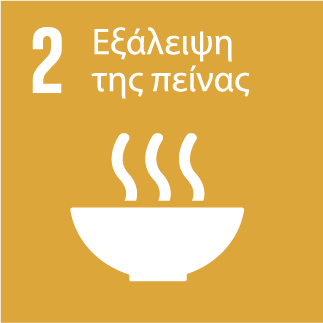
2. Zero Hunger
oil palm agroforestry production will produce multiple crops on the same piece of farmland at once, provide multiple sources of food and income.
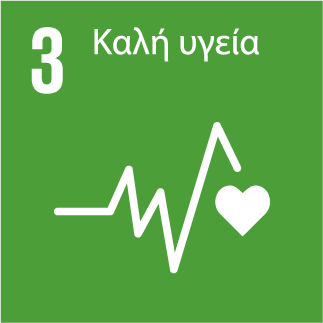
3. Good Health And Well-Being
We collect used plastic water sachets and reuse them as polythene pots for the oil palm seedlings instead of buying new polythene bags to reduce the indiscriminate littering and burning of the plastic water sachet waste. We also collect oil palm ash waste from oil palm mills and reuse it as manure for the seedlings instead of synthetic fertilizer to eliminate the risks of health problems related to chemical residue in crops, reduce the emission greenhouse effect and water pollution and improve crop yield organically.
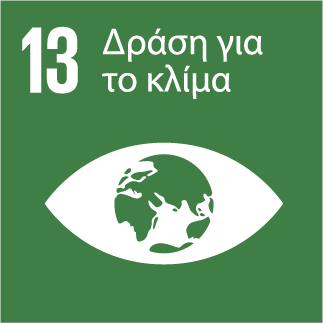
13. Climate Action
We collect used plastic water sachets and reuse them as polythene pots for the oil palm seedlings instead of buying new polythene bags to reduce the indiscriminate littering and burning of the plastic water sachet waste. We also collect oil palm ash waste from oil palm mills and reuse it as manure for the seedlings instead of synthetic fertilizer to eliminate the risks of health problems related to chemical residue in crops, reduce the emission greenhouse effect and water pollution and improve crop yield organically
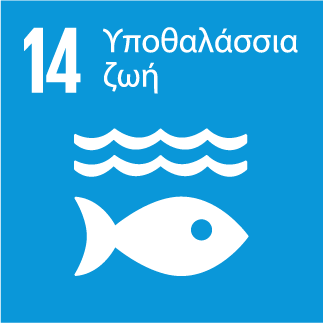
14. Life Below Water
We collect used plastic water sachets and reuse them as polythene pots for the oil palm seedlings instead of buying new polythene bags to reduce the indiscriminate littering and burning of the plastic water sachet waste. We also collect oil palm ash waste from oil palm mills and reuse it as manure for the seedlings instead of synthetic fertilizer to eliminate the risks of health problems related to chemical residue in crops, reduce the emission greenhouse effect and water pollution and improve crop yield organically
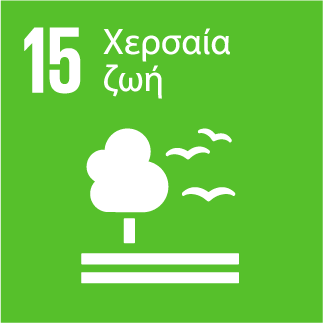
15. Life on Land
We collect used plastic water sachets and reuse them as polythene pots for the oil palm seedlings instead of buying new polythene bags to reduce the indiscriminate littering and burning of the plastic water sachet waste. We also collect oil palm ash waste from oil palm mills and reuse it as manure for the seedlings instead of synthetic fertilizer to eliminate the risks of health problems related to chemical residue in crops, reduce the emission greenhouse effect and water pollution and improve crop yield organically
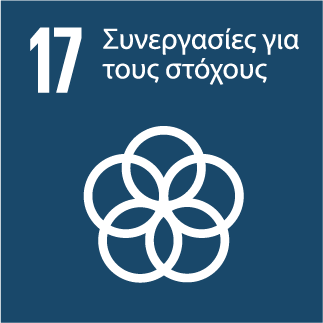
17. Partnerships
We want to work with various institutions and organizations to spread the awareness of regenerative agriculture and circular economy among farmers in rural communities and villages in the palm oil-producing states in Nigeria which will not only boost local production of palm oil but will solve the indiscriminate dumping and littering of waste (plastic water sachets and oil palm ash) reducing the contamination of water bodies and emission of greenhouse effect from the burning of plastic waste and the use of synthetic fertilizer by working with strategic local and international institutions. It will also eliminate the chances of chemical residual in crops, prevent deforestation, create job opportunities for women and the youths by creating demand for recycled waste, provide affordable and healthy crops and generate all-year income for farmers.
Notice: Undefined variable: post_id in /var/www/vhosts/hei-prometheus.eu/httpdocs/entrepreneurship-acceleration-platform/wp-content/themes/understrap-child-1/loop-templates/content-businessidea.php on line 293